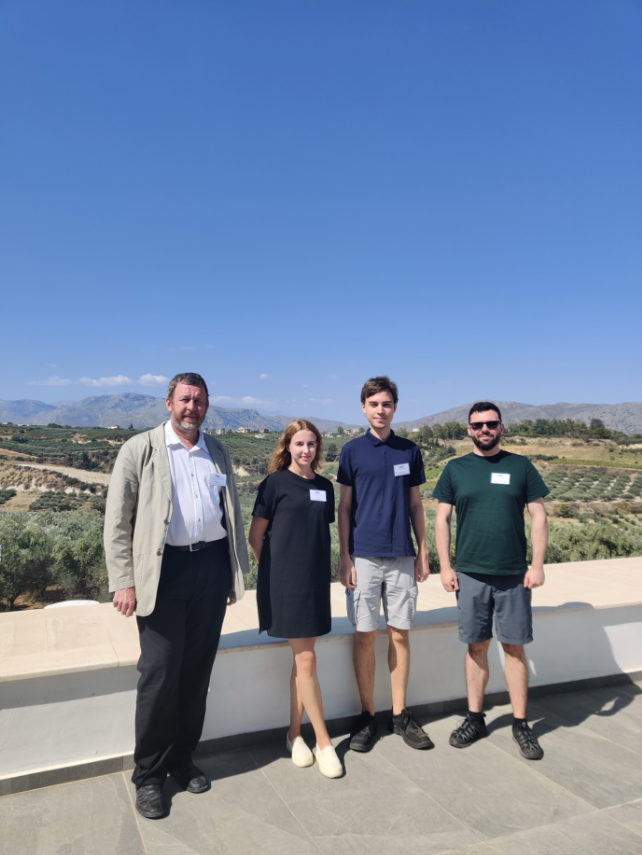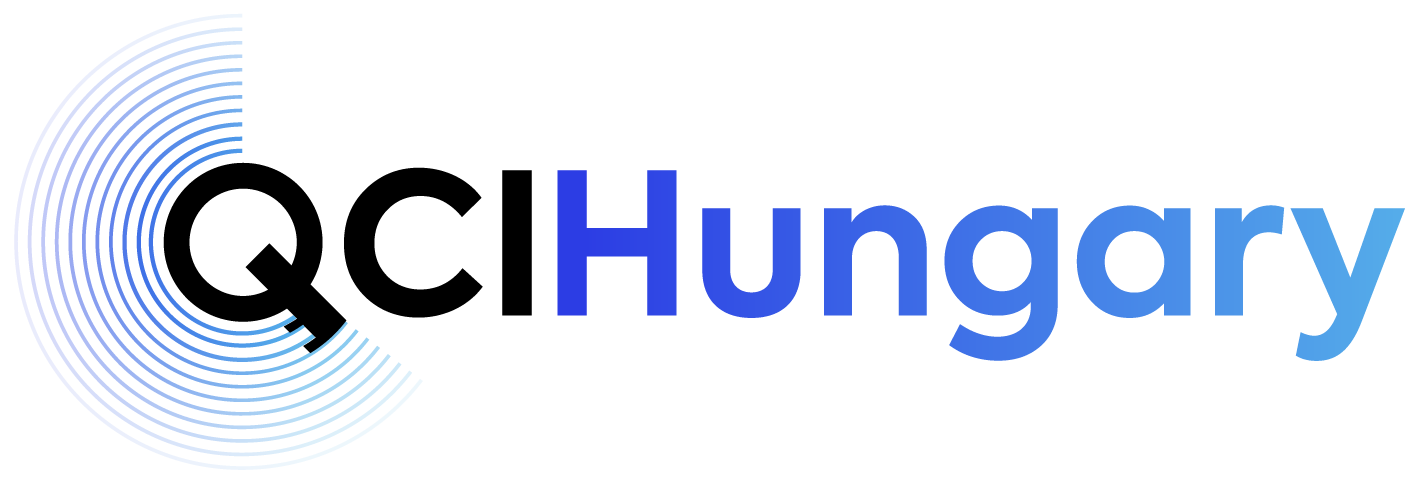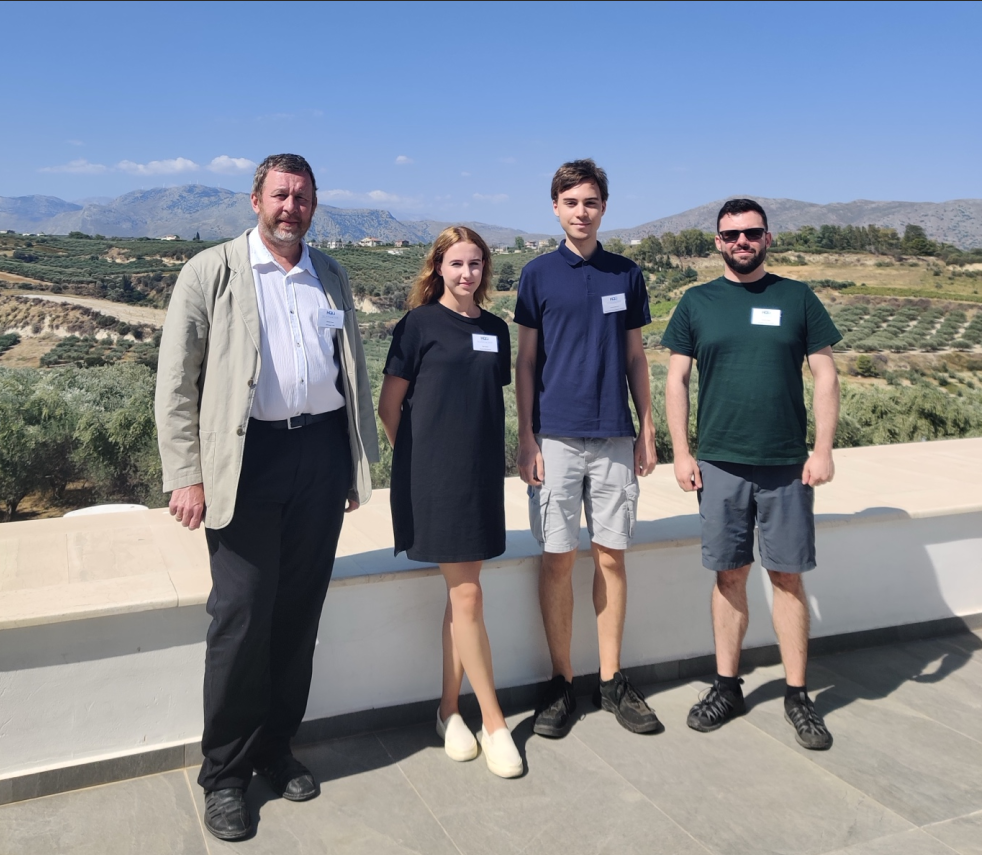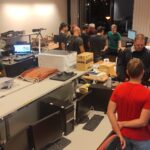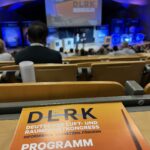HellasQCI, the national quantum communication project of Greece, organised its third educational workshop at the Foundation for Research and Technology – Hellas (FORTH) in Heraklion, Crete, Greece, from 4 to 6 September 2024, in a cryptographically interesting location. In 1908, one of the still undeciphered finds of ancient writing, the Phaistos Disc, was discovered in Crete, which can be considered a cryptographic writing.
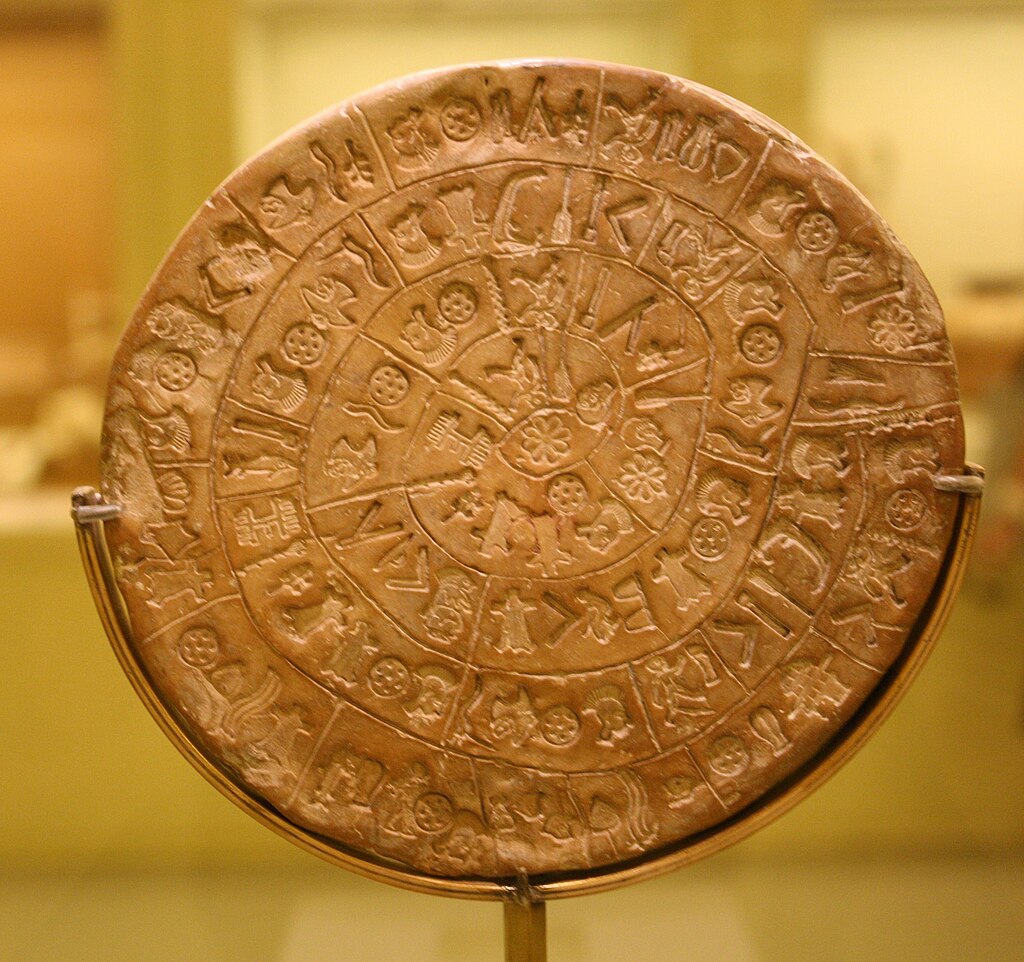
Experts gathered at FORTH, a leading centre for cryptographic research in Greece, to discuss quantum cryptography and related developments. At the beginning of the first day, participants were welcomed by Athanasios Paliatsos, representative of the Greek Ministry of Digitalisation, Dimitrios Katsianis, Deputy Director of NREN Greece, Fabiana Da-Pieve, representative of the European Commission, and Nektarios Tavernarakis, Dimitris Plexousakis, FORTH’s directors.
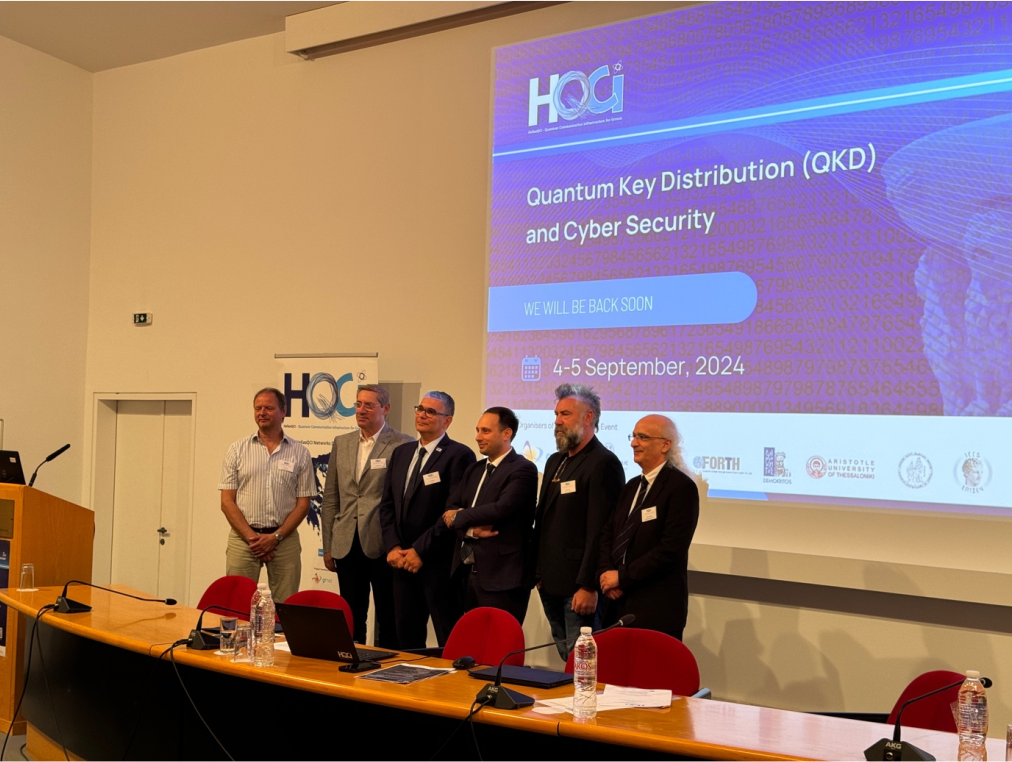
In his keynote speech, Hannes Hübel reminded the participants of the challenges and opportunities of the second quantum revolution and the links between quantum communication and security. Ilias Papastamatiou gave a brief presentation on the objectives and achievements of the HellasQCI project so far. Two international projects supporting quantum cooperation were presented: PETRUS (Sebastian Ramacher) and NOSTRADAMUS (Hannes Hübel), the latter project aiming at developing security certification solutions for quantum equipment and services. Two panel discussions presented national QCI projects from 10 European countries: CYQCI, Cyprus (Kyriacos Kalli / Konstantinos Katzis), EstQCI, Estonia (Ingrid Linnas), PRISM, Malta (Johann Briffa), PTQCI, Portugal (Catarina Bastos), RONAQCI, Romania (Alin Bogdan Popa), QCI CAT, Austria (Sebastian Ramacher), EuroQCI Spain, (Andrea Gorni), LUX4QCI, Luxembourg, (Junaid Ur Rehman), PIONIER-Q, Poland, (Piotr Rydlichowski), QCIHungary, Hungary (János Mohácsi). The panelists mentioned achievements and challenges that have either been solved or are still to be solved. Among the results, simulation solutions and software components that will help to design or operate QKD networks in the future were highlighted.
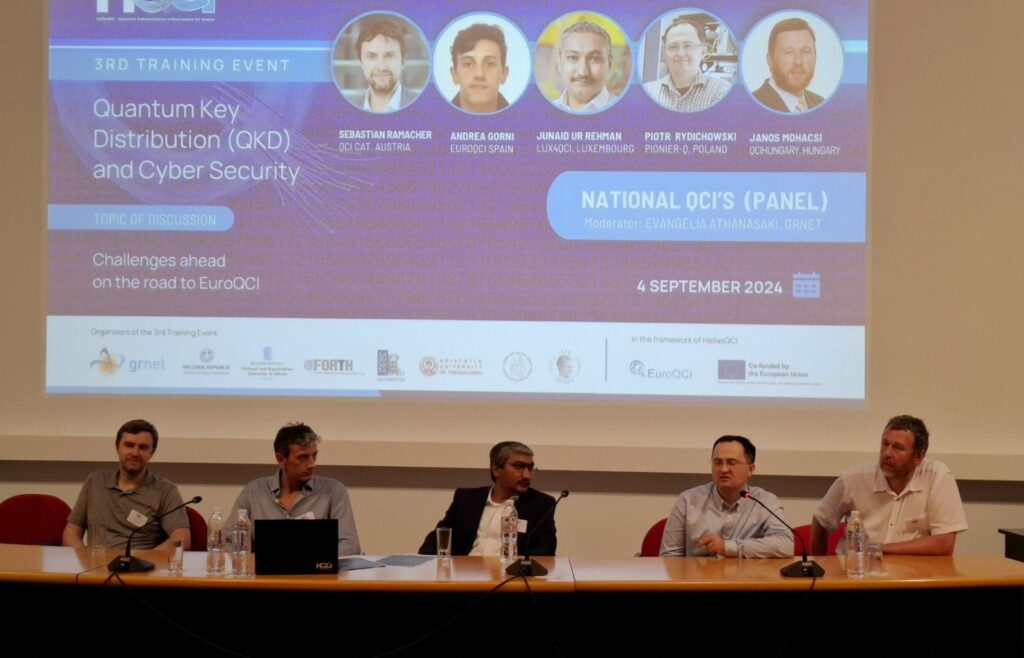
Next, 3 presentations were given on the different components of the QKD Architecture: QKD Quantum Layer (Giannis Giannoulis), QKD Key Management Layer (George Kanellos), QKD Application Layer (Homer Papadopoulos), which highlighted the tasks of the layers of the architecture and how they work together. Another panel discussion on satellite solutions for QKD technology followed.
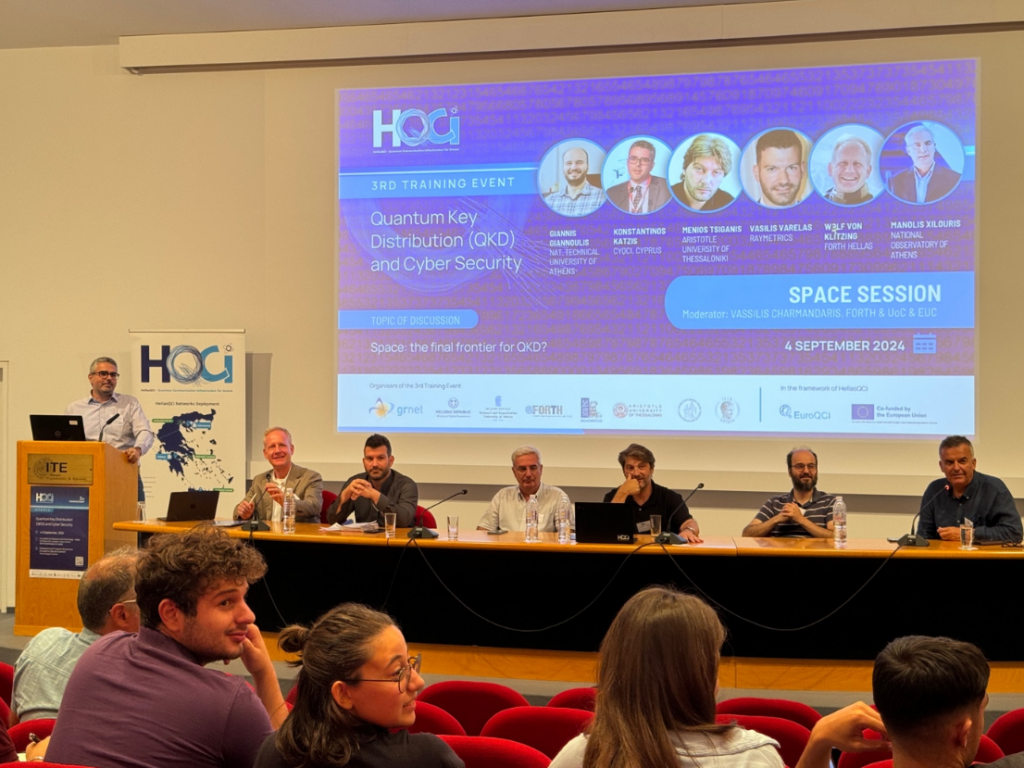
The day ended with presentations of solutions from various quantum communication vendors. Solutions from ThinkQuantum, (Simone Capeleto), ID Quantique, (Pejman Panahi) and Single Quantum, (Aliki Athanasiadou) were presented.
The following day, educational topics were on the agenda. The educational workshop gave an overview of encryption, post-quantum cryptography, QKD technology and the necessary authentication, key management solutions, demonstrated the operation of the QKD network created by the HellasQCI project and showed case studies of its application.
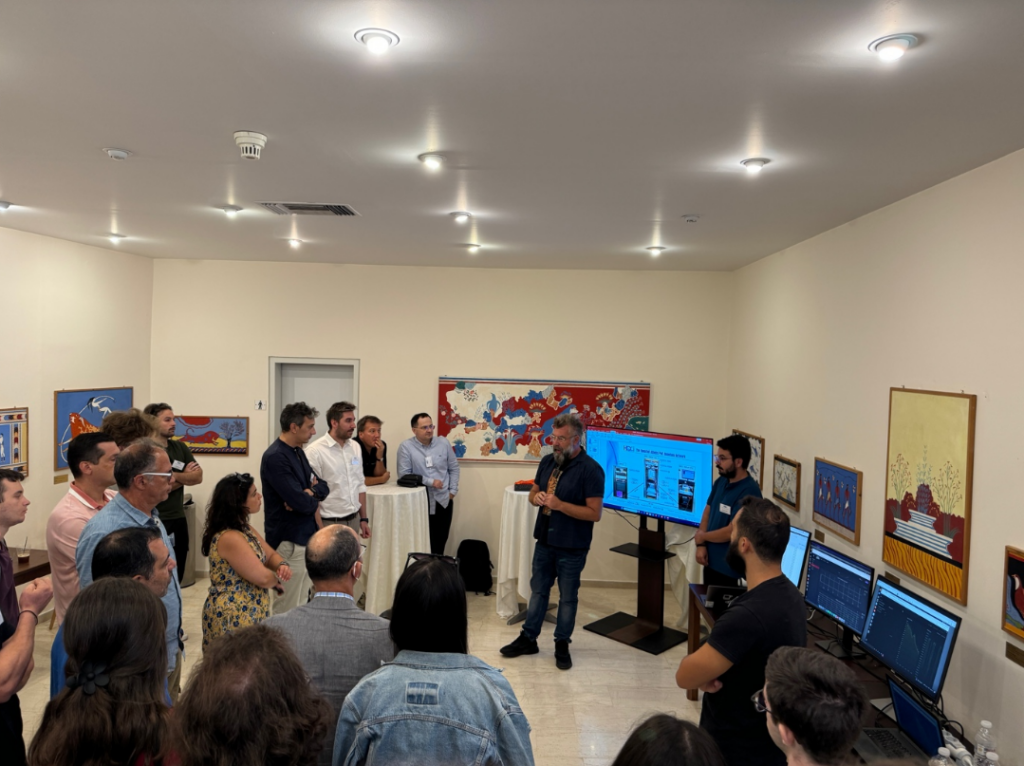
The programme concluded with a visit to the site of the OGS under construction on Crete.
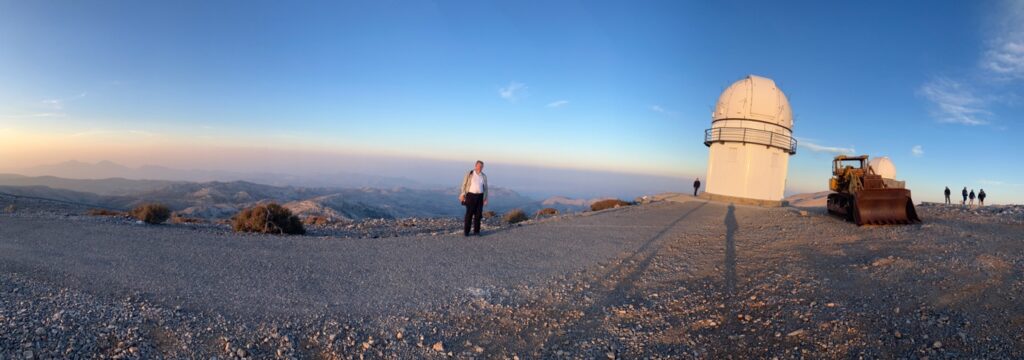
The following colleagues from the QCIHungary project participated in the event: János Mohácsi, (KIFÜ), Máté Galambos (BME), Fruzsina Bene, Nándor Kelecsényi, Gergely Zsolt Kovács (ELTE).
